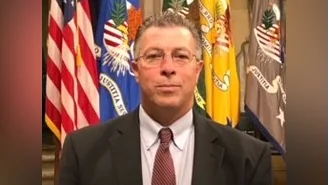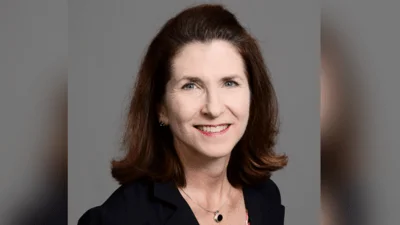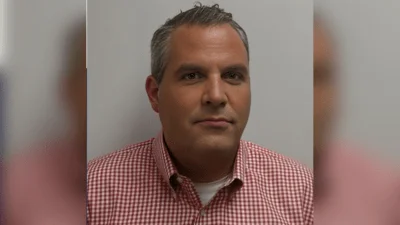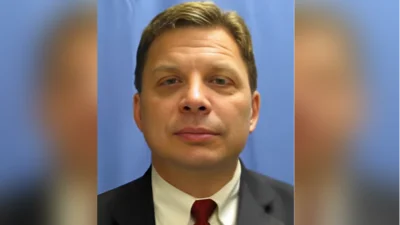The publication is reproduced in full below:
Unanimous Consent Request--Executive Calendar
Mr. DURBIN. Mr. President, I rise today to speak about an issue of vital importance involving the U.S. attorneys.
Each of the 93 U.S. attorneys serves as the chief Federal law enforcement officer within his or her jurisdiction. U.S. attorneys prosecute the full spectrum of criminal cases brought on behalf of the United States, from hate crimes to human trafficking, to gang violence, to cyber crime, to narcotics, to financial fraud, to terrorism. The list is long, and the violations of the law that are alleged are serious.
The position of the U.S. attorney is nearly as old as the Nation itself. In fact, the position has existed since the First Congress. President George Washington signed into law the law that created these attorneys in the Judiciary Act of 1789.
Given the critical role that these U.S. attorneys play in bringing justice to those who violate Federal criminal laws, it is hard to imagine that any Member of this body would obstruct efforts to confirm these law enforcement officials. Doing so could threaten public safety and puts at risk millions of Americans' security.
It is also a stark departure from what has happened before. The last time the Senate required a rollcall vote on a U.S. attorney nominee was 1975. Forty-six years have passed without the request for a rollcall vote on a U.S. attorney. For decades, the Senate has confirmed U.S. attorneys by a voice vote or unanimous consent after they have been considered in the Judiciary Committee.
Listen to this: During the Trump administration, 85 of President Trump's U.S. attorney nominees moved through the Judiciary Committee in the Senate. Of those 85, the Senate confirmed every single Trump nominee by unanimous consent without even requesting a record vote. I might add just for the record, I believe one nominee was held for 1 week so that a question could be answered about his background. That is the only thing that I can recall where they even slowed down the process during the Trump administration. Certainly, it was within our power as Democrats to stop and require a vote, but we didn't. Yet now there is a Republican objection to holding a voice vote on five U.S. attorney nominees: Greg Harris for the Central District of Illinois, Clare Connors for Hawaii, Zachary Cunha for Rhode Island, Nikolas Kerest for Vermont, and Philip Sellinger for New Jersey.
Several of these nominees have been held up for weeks--weeks--by this objection. Why, you ask, is there an objection to these five nominees? There must be something wrong with their records. Well, let's take a look.
Greg Harris is a personal friend of mine. I practiced law with him in Springfield, IL. He spent nearly three decades as assistant U.S. attorney in the Central District of Illinois. That includes my hometown. He has tried over 50 cases to verdict and held a number of leadership positions in the U.S. Attorney's Office. He serves on the Central Illinois Human Trafficking Task Force and the Bankruptcy Fraud Working Group.
His nomination is historic. He will be the first African-American U.S. attorney in the Central District of Illinois, which, of course, is located in Mr. Lincoln's hometown of Springfield--the first.
Clare Connors is currently the attorney general of Hawaii. Ms. Connors previously served as criminal prosecutor in the Justice Department's Tax Division, special assistant U.S. attorney in the Eastern District of Virginia, and for nearly 7 years an assistant U.S. attorney in Hawaii.
Zachary Cunha, currently an assistant U.S. attorney in the District of Rhode Island in the same office he will lead upon confirmation--he has worked there for 8 years, following time as an assistant U.S. attorney in both the Eastern District of New York and the District of Massachusetts.
Nikolas Kerest, also an assistant U.S. attorney, served in the District of Vermont since 2010, following time in private legal practice in Maine and Massachusetts and a clerkship on the Second Circuit Court of Appeals.
Philip Sellinger has had a long and distinguished legal career in New Jersey. He began his legal career as a law clerk for Judge Anne Thompson of the District of New Jersey before joining the U.S. Attorney's Office in Newark. For the past two decades, Mr. Sellinger has been a litigator in a prominent law firm and even served as the firm's cochair of global litigation.
Listen to these biographies. All five of these nominees are eminently qualified to hold the office of U.S. attorney, to prosecute crimes and bring civil actions on behalf of the government, and to help safeguard our communities across America.
There is one thing that all of these U.S. attorney nominees have in common, though. They are all from States with two Democratic Senators. That seems to be the only thing that they might have in common. The objections to these nominees are not that they aren't qualified or that the job is not important; the objection seems to be that they are from States with two Democratic Senators.
So when it comes to critical issues we expect, in the Department of Justice, to be taken care of by U.S. attorneys--issues involving terrorism, human trafficking, narcotics, public corruption, gun violence, the safety of our communities--is the fact that they happen to hail from States with two Democratic Senators enough to disqualify them or to leave these positions vacant?
It is time to end the Republican delay and get these well-qualified prosecutors confirmed and on the job.
We never once during the Trump administration's 4 years held up a U.S. attorney when it came to a voice vote, a unanimous voice vote, to give them the opportunity to serve this country. It is unthinkable that we are going to do this to these fine men and women today. So, today, I will ask unanimous consent for a vote on these nominees.
I ask unanimous consent that the Senate consider the following nominations: Calendar Nos. 534, 535, 536, 581, and 582; that the nominations be confirmed; that the motions to reconsider be considered made and laid upon the table with no intervening action or debate; that no further motions be in order to the nominations; that any related statements be printed in the Record; and that the President be immediately notified of the Senate's action.
The PRESIDING OFFICER. Is there objection?
The Senator from Arkansas.
Mr. COTTON. Mr. President, I reserve the right to object.
The Senate is a special institution. It is a unique institution. James Madison said the Senate was the only truly innovative part of our Constitution.
It remains the case today that our Senate is the only upper Chamber in a Western parliament that has more power under our Constitution than does the lower Chamber. That is in part because of the design of the Senate in our Constitution; because of our Senate rules, of our traditions, of our customs.
We have heard a lot about courtesy and collegiality and respect. Those are very important customs around here, but it has to be a two-
way street.
Earlier this year, in the Judiciary Committee, during the markup for Vanita Gupta to be Associate Attorney General, I was speaking, as is my right under the Judiciary Committee rules. There was at least one other Republican Senator who was preparing to speak. There may have been more. The Senator from Illinois, in his role as chairman of the committee, cut off my remarks and forced through the vote on Vanita Gupta, all so he could save 1 week to get her confirmed--just 1 week.
I said right here at this desk 9 months ago that when our rules and our traditions are so flagrantly breached, there has to be some kind of consequence, and I outlined exactly what that consequence would be at the time: that I would not expedite consideration, as the Senator from Illinois rightly observes is the custom here, for any U.S. attorney nominee from a State represented by a Democrat on the Judiciary Committee because if there are not consequences when rules and traditions are breached in this institution, we will soon not have rules and traditions.
Now, I also said that if the Senator from Illinois would simply express regret for what happened that day and pledge that it wouldn't happen again, I would be happy to let all of these nominees move forward. We have communicated this to the Senator from Illinois and his staff on multiple occasions. I reiterated today that I would be happy to confirm these nominees in the following few minutes if the Senator from Illinois would simply express regret for what happened in the hearing that day and commit that it won't happen again, which, I say again, is simply committing that we follow our own rules. If we hear that from the Senator from Illinois, we will have five new U.S. attorneys.
And I see the Senators from Rhode Island and Hawaii and New Jersey are here. As the Senator from Illinois said, I have no objection to moving forward with any of these particular nominees. All these States can have their U.S. attorneys this afternoon, but if not, I will have to continue to insist that we not expedite these nominations. So I object.
The PRESIDING OFFICER (Mr. Markey). Objection is heard.
The Senator from Illinois.
Mr. DURBIN. Mr. President, I have been trying to understand the Republican objection to these well-qualified U.S. attorney nominees, and the Senator from Arkansas has made it clear. It has nothing to do with them; it is about me.
He, obviously, doesn't approve of what happened one day in the committee. And the price to be paid is not by me but by the U.S. attorneys, well-qualified, who have important jobs to fill.
One member of the Republican caucus is upset with the fact that back in March--this happened in March--the Judiciary Committee moved to vote on the nomination of Vanita Gupta to be Associate Attorney General when Republican members of the committee had not finished speaking on her nomination.
He correctly remembers that he was speaking at approximately 10 minutes to 12 p.m., when I interrupted him, took a rollcall vote, and went back to him if he wished to speak again.
I will be the first to acknowledge that I moved forward with the vote on Ms. Gupta's nomination over the objections of committee Republicans. But put simply, the Republicans forced my hand that day.
The Senator from Arkansas talks about courtesy in this body. I will tell him I think that it should be a hallmark of what we all do at all times. I am fortunate, truly blessed, in my mind, to have, as the ranking member of the Senate Judiciary Committee, a real friend in Chuck Grassley, the Republican Senator of Iowa.
I asked him that day what was going on. I had informed the committee in writing that we would proceed with a vote on Ms. Gupta that day. I then allowed committee Republicans to speak for 94 minutes on Ms. Gupta's nomination, even though much of what was said was repetitive--
some false and some really unwarranted.
I was, in fact, prepared to allow committee Republicans to speak for as long as they wished. I turned to Senator Grassley and said: ``What's the plan here?'' And he said: ``Well, Senator Tillis may return and speak, and we just have these members speaking.''
I had received assurances that the Republicans would not use an obscure Senate rule, the 2-hour rule, to cut off the markup before we voted on Ms. Gupta's nomination. But at 11:55 a.m., I was surprised, as was Senator Grassley, to be informed that despite their earlier assurances, a Republican Senator had, in fact, invoked the 2-hour rule in an effort to prevent Ms. Gupta's nomination from being considered that day and to close down the markup in the committee.
My hand was forced by this action. It was a surprise move, a tactical move, surely within the rules for them to make, but I did exactly what previous Republican chairs of the Judiciary Committee did in similar situations. I ended the debate and called for the vote on the nomination.
If you are listening to this and wondering what these arcane committee procedures have to do with U.S. attorney nominations, you are not alone. The Senator is pleading that we should stand by the traditions of the Senate. And by the traditions of the Senate, these U.S. attorney nominees would go through by unanimous consent. That is a tradition of the Senate as well.
The simple answer is, what happened with the markup debate more than 8 months ago has nothing to do with these five fine individuals or with any other U.S. attorney nominee who may come before the Senate.
If the Senator from Arkansas wants me to publicly express my regret for this occurrence, I express that regret. But I want to make it clear, I relied on my friend Senator Grassley. We were both surprised to know that someone had invoked the 2-hour rule. Caught by surprise, I did what other Republican chairs of the committee have done.
I don't believe we should play politics with critical law enforcement nominations. They are putting our communities at risk and politicizing law enforcement in a way that threatens public safety.
If we are going to truly stand up for law and order, let these men and women go to work across America representing the Department of Justice.
The PRESIDING OFFICER. The Senator from Arkansas.
Mr. COTTON. Mr. President, I would like to address the Chair with a question to the Senator from Illinois.
I appreciate those comments. I would observe that since that day, we have not had a similar circumstance in which any Republican wishing to speak was cut off in a markup.
Can we simply have a commitment that that will not happen again in the future, as it hasn't happened in the last 9 months?
The PRESIDING OFFICER. The Senator from Illinois.
Mr. DURBIN. Responding through the Chair, as long as there is openness and honesty about what is happening in the procedure, I will assure you that I will do everything I can to extend that courtesy forward.
That particular day, you may or may not be aware of the fact that while you were speaking, we learned--Senator Grassley and I both learned that someone had raised the 2-hour rule, and it came as a surprise to both of us.
When we are open and honest about what we are trying to achieve in a committee, there is no reason why we can't abide by basic courtesy in the tradition of the Senate.
Mr. COTTON. Mr. President, I appreciate the remarks from the Senator of Illinois. I will invite him to make his unanimous consent request again. I do not intend to object further. And a voice vote is fine.
____________________
SOURCE: Congressional Record Vol. 167, No. 211
The Congressional Record is a unique source of public documentation. It started in 1873, documenting nearly all the major and minor policies being discussed and debated.
Senators' salaries are historically higher than the median US income.





 Alerts Sign-up
Alerts Sign-up